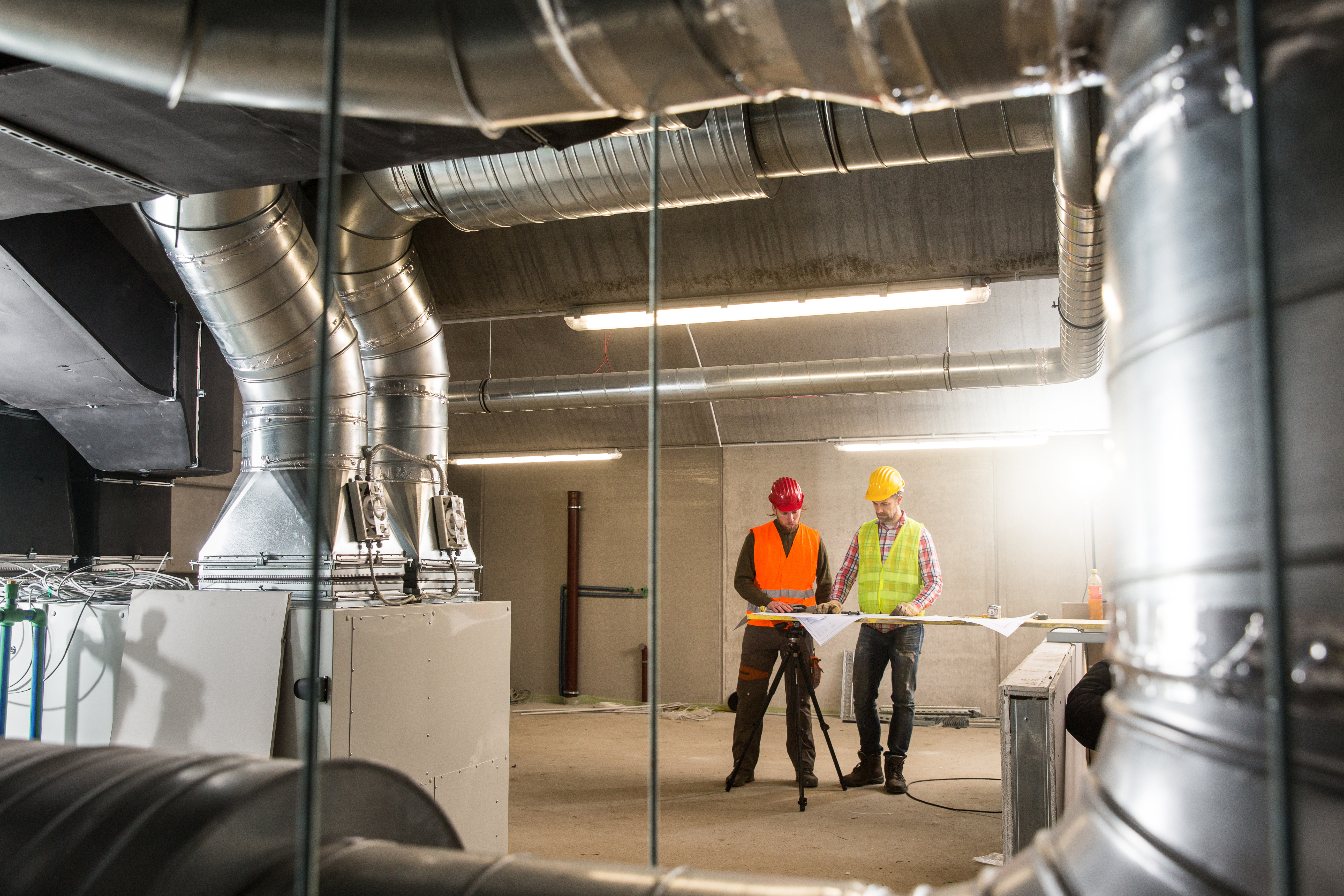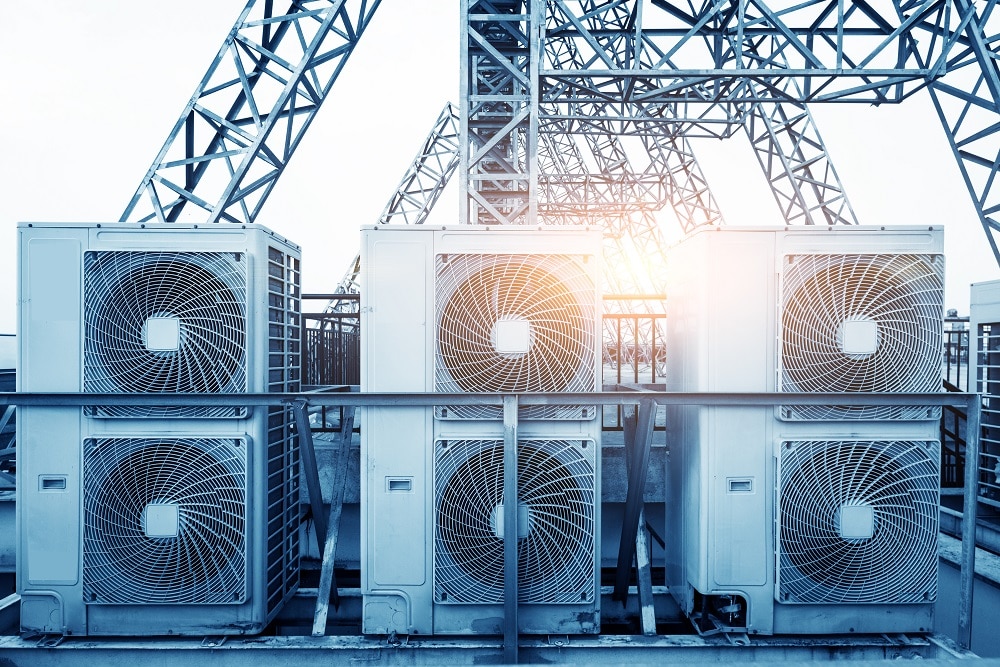Understanding the Various Kinds Of A/c System for Ideal Performance
Recognizing the numerous kinds of HVAC systems is essential for house owners intending to boost comfort and energy effectiveness. Air conditioning systems give consistent temperature level control, while ductless mini-split systems supply adaptability. Warm pumps provide effective year-round climate management. For smaller spaces, window and portable air conditioning unit function as functional remedies. Geothermal systems use consistent below ground temperature levels for lasting cooling and heating. Each alternative holds special advantages, motivating a closer exam of which could match private requirements best.
Central Air Solutions
Although lots of house owners seek ways to enhance indoor comfort, recognizing main air conditioning systems is crucial for efficient climate control. Central air conditioning runs by circulating trendy air with a system of air ducts, distributing it uniformly throughout the home. This type of system consists of a number of essential elements, consisting of an outside compressor, an indoor evaporator coil, and a network of ductwork.
The compressor cools cooling agent, which then soaks up warm from indoor air as it passes via the evaporator coil. This cooled air is pressed with the air ducts and right into living areas, guaranteeing a consistent temperature level. Central air systems are recognized for their effectiveness, commonly utilizing programmable thermostats to enhance energy usage. Routine upkeep, such as filter changes and system checks, is necessary to guarantee long life and performance. Understanding these elements helps homeowners make educated decisions concerning installation and maintenance, ultimately boosting comfort and power efficiency in their homes.

Ductless Mini-Split Systems
Ductless mini-split systems use a flexible option to typical central air, accommodating house owners looking for reliable climate control without the need for extensive ductwork. These systems are composed of an outdoor compressor unit and one or even more interior air-handling devices, enabling targeted air conditioning and heating in certain locations or rooms. This zoning capability improves convenience by allowing users to readjust temperature levels based upon specific choices, inevitably leading to energy savings.
Installation is typically easier and less invasive compared to ducted systems, which can be useful for older homes or areas with restricted structural adjustments. Furthermore, ductless mini-split systems usually include energy-efficient modern technologies, such as inverter-driven compressors, which maximize power usage based on need. Their small style additionally permits different placement alternatives, making them suitable for unique or limited spaces. Consequently, ductless mini-split systems have actually gotten popularity amongst home owners seeking modern-day, reliable cooling and heating options.
Warm Pumps
Heatpump stand for a flexible and energy-efficient alternative for both home heating and cooling down domestic areas. These systems operate by moving warm as opposed to creating it, making them especially effective in modest environments. During warmer months, heatpump draw out warm from indoors and release it outside, offering cooling. Conversely, in wintertime, they reverse this procedure, attracting heat from the outdoors air or ground to heat the interior.
There are 2 primary kinds of warmth pumps: air-source and ground-source (or geothermal) Air-source heatpump are much more usual because of their simpler setup and lower first cost, while ground-source versions flaunt higher performance and stability in efficiency. In addition, warm pumps can especially decrease energy expenses and carbon footprints when compared to typical heating approaches, making them an environmentally friendly selection. In general, heatpump stand as a compelling remedy for house owners looking for reliable climate control throughout the year.
Window and Portable Air Conditioners

On the various other hand, mobile air conditioning unit use adaptability, as they can be conveniently moved from area to area. These units usually need an airing vent package to wear down warm air via a home window, yet they give a convenient option for momentary cooling requirements.
Both kinds of air conditioners appropriate for renters and those seeking to avoid comprehensive installment procedures. Customers need to take into consideration variables such as BTU ability, power effectiveness scores, and noise levels when selecting a device to guarantee peak performance for their certain space and cooling needs.
Geothermal Cooling And Heating Solutions
As energy efficiency becomes increasingly vital, geothermal home heating and air conditioning systems have acquired popularity for their lasting technique to climate control. These systems make use of the steady temperatures located underground to supply heating in winter and air conditioning in summertime. By taking advantage of the earth's all-natural thermal energy, geothermal systems substantially minimize dependence on nonrenewable fuel sources and reduced energy costs.

Furthermore, geothermal systems commonly require much less upkeep his response contrasted to typical cooling and heating systems, resulting in long-lasting financial savings - HVAC experts. With boosting recognition of environment change, these systems stand for a forward-thinking remedy for those looking for efficient and environment-friendly home heating and cooling down alternatives
Often Asked Concerns
Exactly how Frequently Should I Service My A/c System?
Cooling and heating systems ought to ideally be serviced twice a year, once in the spring and once in the fall. Regular upkeep aids assure performance, lengthens life expectancy, and protects against pricey failures throughout optimal use seasons.
What Size HVAC System Do I Need for My Home?
Determining the appropriate dimension for a cooling and heating system calls for computing the home's square video, insulation high quality, and climate. A professional assessment warranties optimal effectiveness, comfort, and energy cost savings customized to the certain demands of the home.
Can I Mount a Heating And Cooling System Myself?
Setting up a HVAC system independently is possible, yet it calls for technical knowledge and abilities. Errors can lead to inadequacy or safety and security threats, so consulting dig this a specialist is commonly suggested to guarantee correct setup and conformity with guidelines.
What Are the Signs My HVAC System Requirements Repair?
Indicators that a HVAC system requires repair service include unusual sounds, irregular temperatures, increased power bills, undesirable odors, and constant cycling. Motivate attention to these indications can avoid more damage and guarantee height system performance.
Exactly How Can I Enhance My a/c System's Energy Efficiency?
To boost heating and cooling energy effectiveness, one ought to routinely change filters, seal ducts, set up a programmable thermostat, guarantee appropriate insulation, and timetable regular upkeep checks. HVAC experts. These actions jointly boost performance while minimizing power consumption and expenses
Central air conditioning systems give uniform temperature control, while ductless mini-split systems provide adaptability. Central air conditioning runs by distributing amazing air via a system of air ducts, distributing it evenly throughout the home. Central air conditioning systems are understood for their efficiency, usually utilizing programmable find thermostats to enhance energy use. Ductless mini-split systems use an adaptable choice to traditional central air conditioning, catering to property owners seeking effective environment control without the requirement for considerable ductwork. Geothermal systems normally call for much less maintenance contrasted to traditional Heating and cooling systems, resulting in long-lasting financial savings.